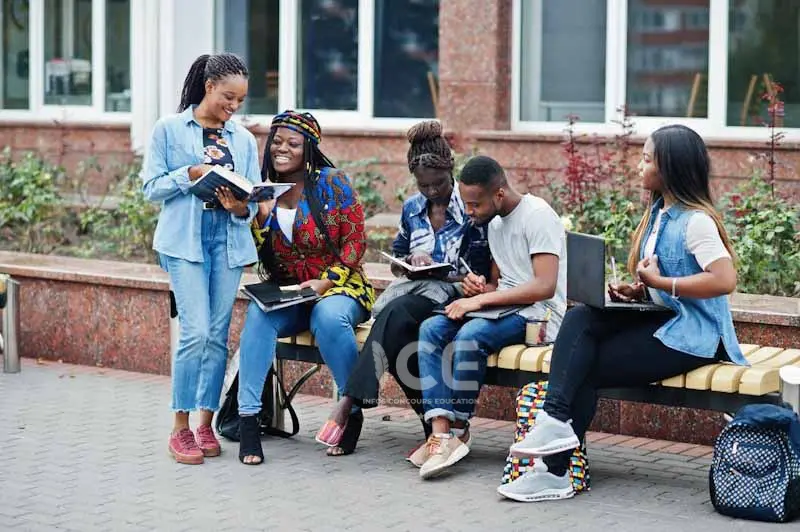Vous êtes intéressé par une bourse d’étude particulière et vous souhaitez être guidé dans le processus de constitution des dossiers de candidature? Alors Cliquez ici pour rejoindre notre groupe Télégram
TWAS, in collaboration with the Lincei Academy and SISSA, offers young scientists from Least Developed Countries the opportunity to visit research laboratories in Trieste, Italy, such as SISSA, to carry out research work in scientific fields within the SISSA portfolio (please see below and also in the application form).
Application Deadline: 30th September 2024
About the Award: Young scientists from Least Developed Countries who hold an MSc (or higher degree) can visit laboratories located in Trieste, Italy, such as SISSA, for three months to carry out collaborative research projects in Physics, Neuroscience, Mathematics, Science Outreach as well as COVID-related projects and that fall under the umbrella of the United Nations Sustainable Development Goals (SDGs).
Eligible Field(s): Applications will only be considered if in the eligible fields indicated below. Research proposals must fall under the umbrella of sustainability science and thus be relevant to areas that support the SDGs (please see https://sustainabledevelopment.un.org).
PHYSICS
- Astroparticle Physics (APP)
- Astrophysics and Cosmology (APC)
- Theory and Numerical Simulation of Condensed Matter (CM)
- Physics and Chemistry of Biological Systems (SBP) –
- Statistical Physics (SP)
- Theoretical Particle Physics (TPP)
- Data Science Excellence Department Initiative (DS)
NEUROSCIENCE
- Cognitive Neuroscience
- Neurobiology
- Functional and Structural Genomics
MATHEMATICS
- Geometry
- Mathematical analysis
- Mathematical modelling
- Mathematical physics
- Numerical analysis and scientific computing
- Data Science
SCIENCE OUTREACH
- Applicants must be a maximum age of 40 years on 31 December of the application year.
- Applicants must hold an MSc (or higher degree).
- Applicants must be nationals of a Least Developed Country (please see the United Nations definition at https://www.un.org/development/desa/dpad/least-developed-country-category.html, as well as a list of eligible countries).
- Applicants must hold a research position in a Least Developed Country.
- Particular attention will be given to research projects that fall under the umbrella of sustainability science.
- Women scientists are especially encouraged to apply.
- Applicants already on site in the host country are not eligible.
- Only applications in the scientific fields specified below and listed in the application form will be considered.
RELATED POSTS
Eligible Countries: Least Developed Countries
To be Taken at (Country): Trieste, Italy
Number of Awards: Not specified
Value of Award: The Italian Ministry of Foreign Affairs and International Cooperation and the Italian Agency for Development Cooperation, through TWAS, will cover travel expenses and provide subsistence costs for the stay in Italy. The administration and financial operation of TWAS is undertaken by UNESCO in accordance with an agreement signed by the two organizations.
Duration of Award: 3 months
How to Apply:
- Fellowships are awarded by the Selection Committee on the basis of scientific merit.
- Applications should be completed in English.
- Applicants need to submit the complete application form duly signed and send it to the TWAS Secretariat. Applications may be sent by email as long as pages with signatures are sent as scanned documents. Incomplete/unsigned applications will NOT be accepted.
- Material requested:the completed application form;
- copy of passport, even if expired (only the page with personal details is required);
- the applicant’s curriculum vitae;
- a statement on scientific interests and future plans for research in sustainability sciences in the home country explicitly referring to which SDGs contributions are likely to be made;
- full list of publications (do not enclose reprints of articles);
- copy of the MSc (or higher) certificate;
- a recent invitation letter obtained through SISSA which should contain the proposed time of the visit (3 months) and should refer to the proposed cooperation. It should be made evident that the applicant and the proposed host have been in contact regarding the scientific work to be done during the visit and that the conditions for conducting the work have been agreed in terms of the timing of the visit and the facilities available;
- recent letters of recommendation, which must be submitted separately to TWAS by two referees who are familiar with the applicant’s work. N.B. Only signed reference letters can be accepted.
Visit Award Webpage for Details






